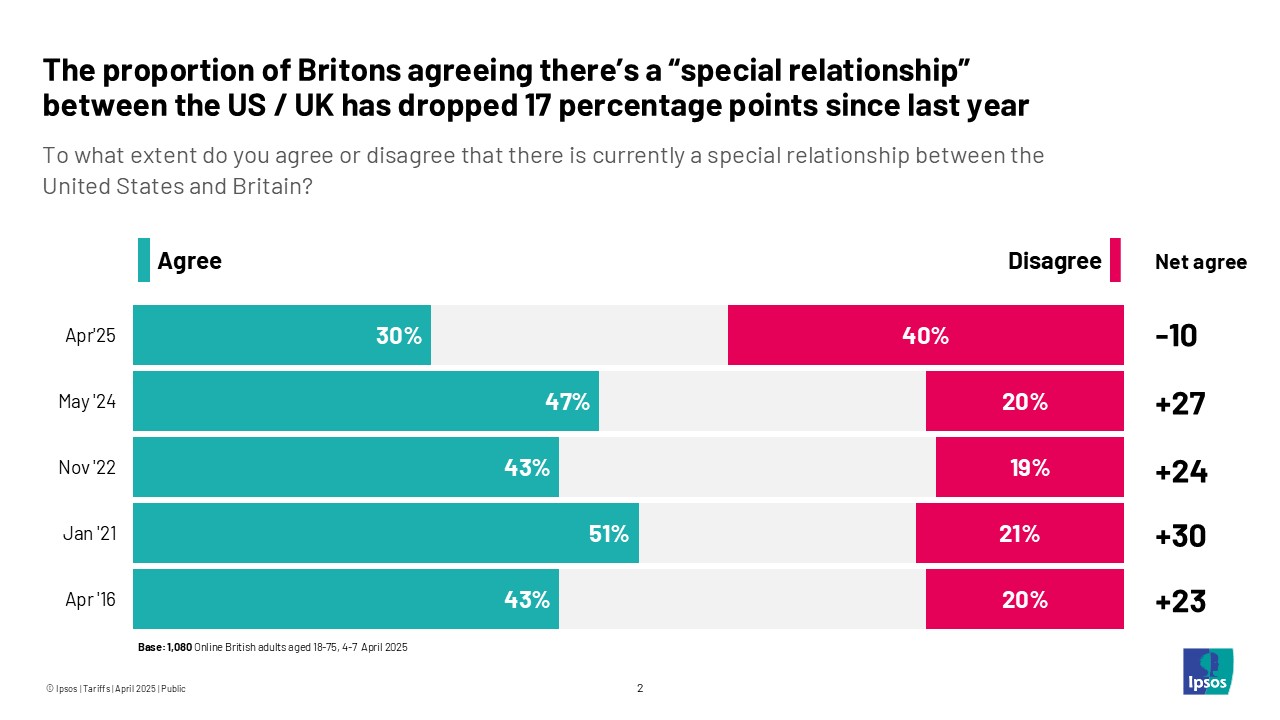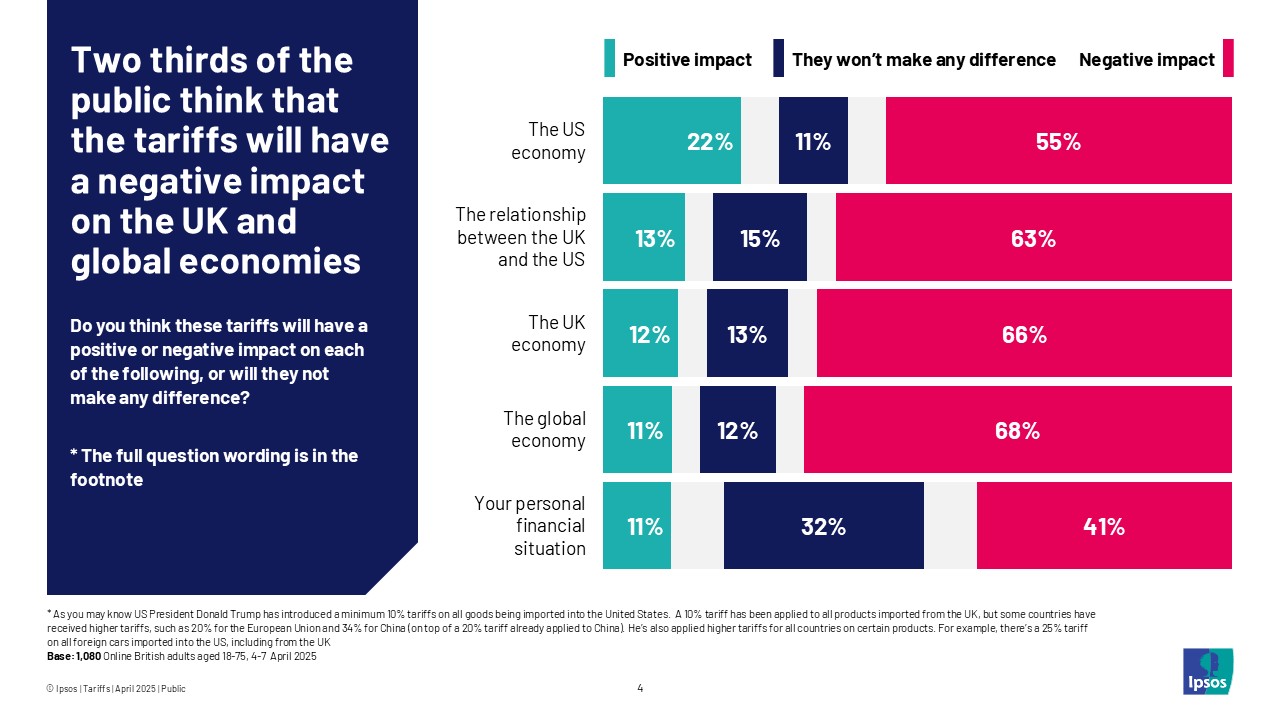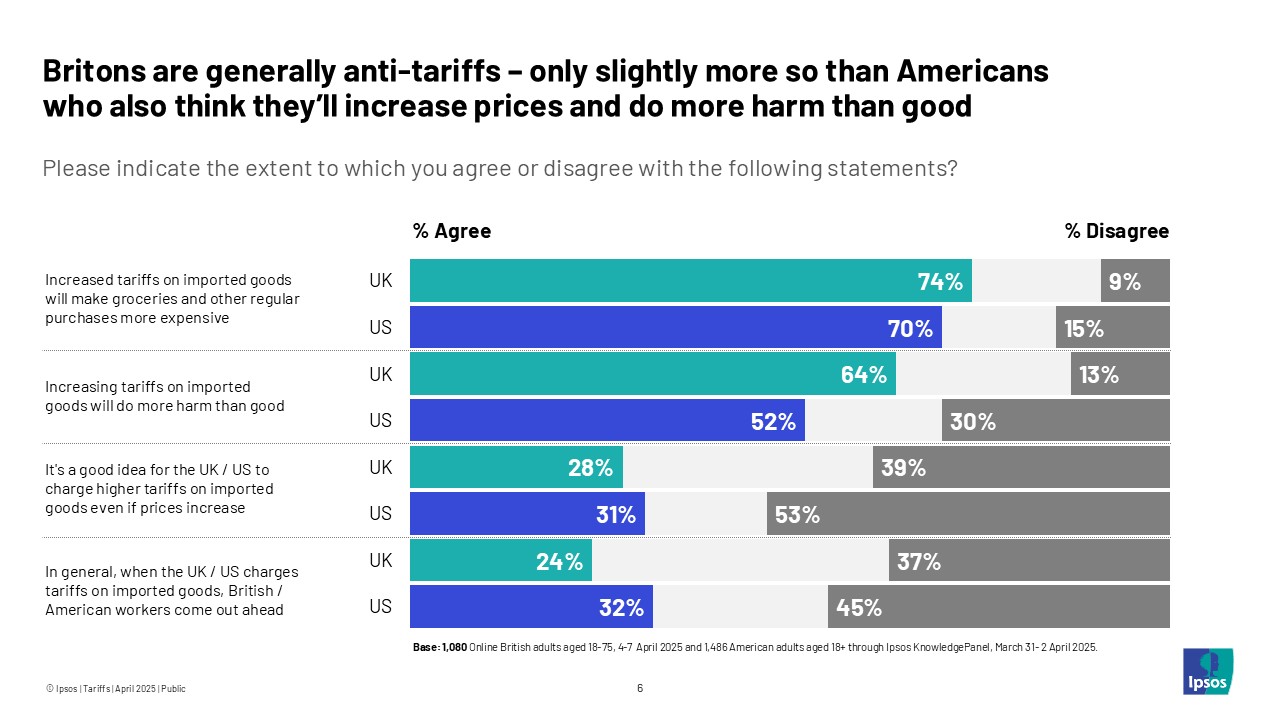The proportion of Britons saying there isn’t a “special relationship” with the US doubles in one year amidst concern over tariffs
A new Ipsos UK study reveals a substantial shift in British public opinion towards the US, marked by declining belief in the "special relationship", amidst clear concern over the impact of US tariffs. The online survey of 1,080 British adults aged 18-75, conducted from April 4-7, 2025, highlights key trends:
- Erosion of the "special relationship": Only three in ten (30%) Britons now agree there is currently a "special relationship" between the US and UK, a significant 17-point drop from the previous year (47% in May 2024).

- US influence viewed more negatively: 41% of Britons believe the US mostly uses its influence for bad in the world, a stark 25-point increase from April 2024, when 16% said that the US mostly uses its influence for bad.
- Widespread concern over tariff impact: Around two thirds of the British public anticipate a negative impact from US tariffs on both the UK (66%) and global (68%) economies. 41% of Britons expect them to have a negative impact on their personal financial situation. This concern also extends to the UK-US relationship, with 63% expecting a negative impact.

- Disapproval of Trump's handling of tariffs: A clear majority (63%) of Britons believe Donald Trump has done a bad job handling the tariff situation (18% good job). Opinion is more divided on the UK government's handling of the issue, with 35% saying they've done a bad job and 26% a good job. Opinion is similarly split on Keir Starmer, with 38% saying the Prime Minister has done a bad job and a quarter (25%) saying he has done a good job.
- Opposition to tariffs in principle: A majority of Britons (74%) agree that increased tariffs will make regular household purchases more expensive, and 64% say that increasing tariffs will do more harm than good. These sentiments are broadly shared by Americans, albeit to a slightly lesser extent.

- Support for trade deal, while Britons want the government to keep its options open over retaliatory measures: Britons express support for various responses to the US tariffs, with the strongest support (51%) for agreeing a trade deal to reduce trade barriers. There is also qualified (albeit not majority) support both for introducing retaliatory tariffs on US goods (44%) and for not imposing reciprocal tariffs immediately, but holding them open as an option in the future if a trade deal cannot be agreed (42%). However, there is more opposition (37%) to ruling out retaliatory tariffs altogether.
Commenting on the findings, Gideon Skinner, Senior Director of UK Politics at Ipsos, said:
These findings underscore a growing unease among the British public regarding the global role and trade policies of the United States – traditionally one of our most steadfast allies. The stark decline in the British public’s belief in the "special relationship" and the increasingly negative perception of US influence, suggests a potential cooling of transatlantic ties. It’s likely that concerns over the impact of tariffs are playing a key role in this, especially when Britons’ economic optimism was already in short supply. The public's clear opposition to President Trump’s tariffs – and indeed concerns over the impact of tariffs in general on prices - and preference for a trade deal indicate a degree of understanding for Keir Starmer’s current cooperative approach. However, it’s important to note that almost four in ten oppose ruling out retaliatory tariffs altogether – suggesting there may come a point where the British public want to see a more robust response. A crucial indicator here will be perceptions of the negative economic impact of tariffs on people’s personal finances, and what impact this will have on what action Britons want the UK government to take.
Technical note:
- Ipsos interviewed a representative sample of 1,080 adults aged 18-75 across Great Britain. Polling was conducted online between the 4th and 7th April 2025.
- Data are weighted to match the profile of the population. All polls are subject to a wide range of potential sources of error.




